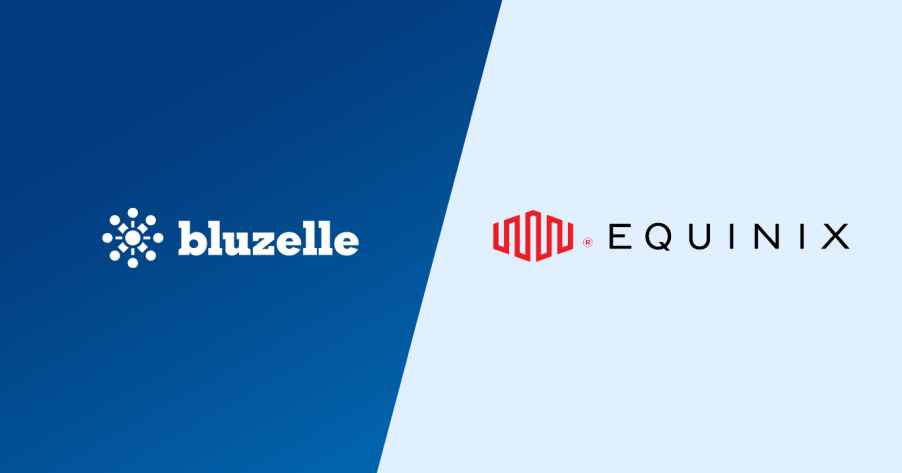Bluzelle partners with $50B data infrastructure leader Equinix to enable secure cloud-hosted PoS validators for the first time

We wrote about Bluzelle back in February after the blockchain startup launched its first developer grant program, focused largely on the creation of the censorship-resistant application. As a provider of the decentralized database for Web3, Bluzelle enables Dapps (decentralized applications) to store their data in a place that is both decentralized and mutable, getting the best of everything.
The Bluzelle ecosystem currently comprises 1,889 developers on Discord, and the platform has partnered with 34 blockchain entities including Matic, Polkadot, and Elrond. Bluzelle also has over 10 community projects under its umbrella. Its database is also powered by a 10,000 TPS blockchain and is interoperable across any chain.
Since 2020, DeFi has been gaining momentum and increasingly more users are turning to Bluzelle’s distributed Open Source database service using blockchain technology for Serverless and Distributed Applications. Since our last story in February, Bluzelle has been building new strategic partnerships with other technology giants.
Today, Bluzelle announced it has teamed with Equinix, the world’s digital infrastructure company, to allow hosting validators in Proof-of-Stake blockchains on standard cloud computing solutions. This will enable retail crypto participants to launch validators in the cloud with the same security and performance as professional validators. Equinix is a $50B company on the NASDAQ. They specialize in Internet connection and data centers. Equinix is a leader in global colocation data center market share, with 210 data centers in 25 countries on five continents. As part of the collaborative effort, Bluzelle will leverage Equinix SmartKey to enable secure cloud-hosted PoS validators for the first time.
So why is this a big deal? Until now, running a validator on the many blockchains can be a challenge. To do it right in regards to performance and security, you need to be very tech proficient and run your own node on a dedicated server. This is why you had the emergence of professional validators. But as the decentralized internet grows, more people want to participate in adding to the network so they too can earn rewards. A truly decentralized internet will have millions of nodes, but not everyone is capable of managing it themselves.
The current solution has been for blockchains to set it up so retail can become validators by using cloud-based solutions like Google Cloud or AWS. But this is not bullet-proof, as hosting nodes on the cloud would expose the validator’s private key to the cloud network. We all know the saying “Not your keys, not your coins”, well in a similar way it applies here. If the validator’s cloud environment were to be hacked, the attackers can expose the staker to slashing and loss of reputation. If a sufficient number of the blockchain’s validators rely on vulnerable cloud platforms, an attacker could compromise the entire blockchain and destroy its value.
Validating a Proof-of-Stake network requires the utmost degree of security.
Here is how Bluzelle’s solution change the current landscape. To make it so millions of validators can join the networks, we need to make cloud platforms easy and safe to use. This is where Bluzelle stepped in and developed a module that connects the Tendermint Key Management System (TMKMS) to Equinix’s SmartKey, an enterprise-grade HSM-as-a-service solution based on FIPS140–2 Level 3 certified hardware. As the first proof that this could work, Google Cloud Platform provided the backend needs to make this a reality.
Bluzelle’s module allows Equinix SmartKey to sign blocks whenever requested by TMKMS. This separates the vital private key information from the computing environment on Google Cloud. The private key remains stored on HSMs at all times, with SmartKey acting as an External Key Manager (EKM) for Google Cloud Platform. It’s like having your Ledger Nano S store your private keys and the networks never being exposed to them.
“The true vision of Web3 cannot be achieved unless we have millions of nodes monitoring the networks. But that cannot happen if it’s only professional validators,” explained Pavel Bains, Co-Founder and CEO of Bluzelle. “This level of security of using HSMs to manage private keys is only accessible to the largest and most well-funded validators. While on some networks, validators are meant to be professional enterprises, blockchains like Ethereum 2.0 want validation open to as many enthusiasts as possible. Our solution with Equinix and proven on Google Cloud Platform shows that enthusiasts will be able to join with the same security as professionals.”
Why This Matters
This is a first-of-its-kind solution, not only built for the Bluzelle blockchain, but also for the broader PoS blockchain industry. It enables stakers, especially smaller ones, to set up a secure and high-performance validator on the Google Cloud Platform. Though we are starting with Bluzelle and Cosmos-based blockchains, we are also going to extend the solution over time to all the others, including Ethereum, Polkadot, and more.
“The Equinix SmartKey architecture offers all the benefits of processing data in the cloud while maintaining full control over the location, distribution, and access of your keys,” said Anthony Ho, Product Management Director, Equinix Asia-Pacific. “We are excited that blockchain validators will discover all the benefits of our key management solution thanks to the collaboration with Bluzelle.”
Founded in 2014 by Neeraj Murarka and Pavel Bains, Bluzelle offers a complete and fully integrated stack of blockchain applications, middleware, and data services.
Powered by a byzantine fault-tolerant cluster of blockchains customized specifically for database operations, Bluzelle is a decentralized database for Web3. Its advanced data delivery network promises to protect businesses from data breaches, network failures, and performance troubles. Bluzelle effectively serves as an “Airbnb of databases,” with developers paying for storage space and read/write to the decentralized database.
Secure, tamper-proof and highly scalable, Bluzelle completed a public sale in January 2018, raising $19.5m. While data storage is the foundation, the platform is in the process of developing data feeds and oracles for the next phase of its evolution to help bring about a faster and more secure internet.

